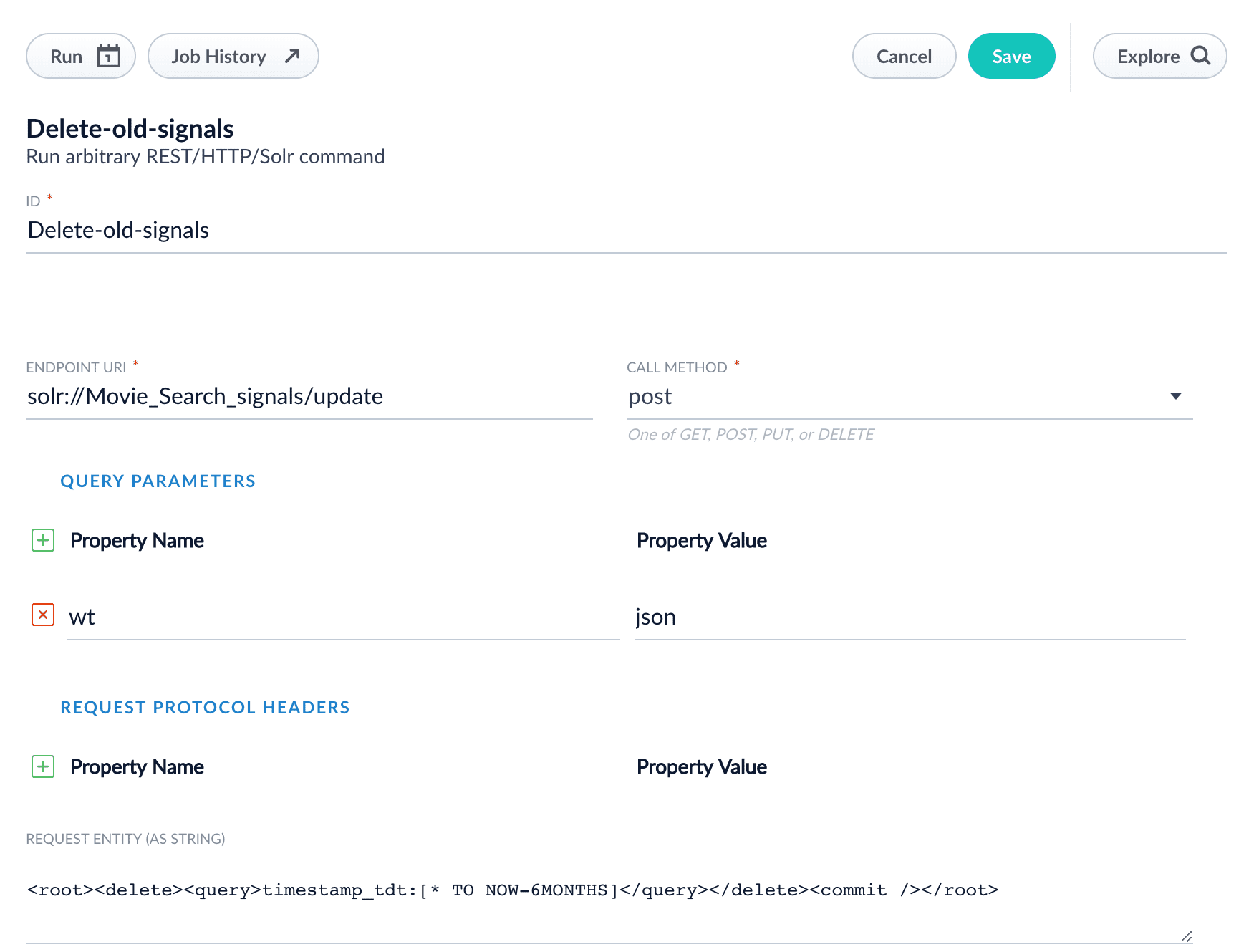- any HTTP or HTTPS request:
<http-protocol>://<path>; requires JWT header. - a Solr request:
solr://COLLECTION_NAME/…; authentication is handled. - a Fusion service request:
extservice://SERVICE_NAME/<path>; authentication is handled.
- ID. The user-defined name for this job. This is the
idfield in the configuration file. Required field. - Endpoint URI. The name or location of the data this job searches. This is the
urifield in the configuration file. Required field. - Call method. The operation submitted in the request. Values are GET, POST, PUT, or DELETE. This is the
methodfield in the configuration file. Required field. - Query parameters. This section lets you enter
property name:property valueoptions submitted in the query. This is thequeryParamsfield in the configuration file. Optional field. - Request protocol headers. This section lets you enter
property name:property valueprotocol headers submitted in the query. This is theheadersfield in the configuration file. Optional field. - Request entity. The request string to submit for the query. This is the
entityfield in the configuration file. Optional field.
Example configuration
This example configures this type of job to delete your old signals data:- Navigate to Collections > Jobs.
-
Click Add and select REST Call.
The REST Call job configuration panel appears. - Enter an arbitrary ID for this job, such as “Delete-old-signals”.
-
Enter the following endpoint URI, substituting the name of your signals collection for
signalsCollectionName: - In the Call Method field, select “post”.
- Under Query Parameters, enter the property name “wt” with the property value “json”.
-
In the Request entity (as string) field, enter the following:
Your job configuration should look similar to this:
